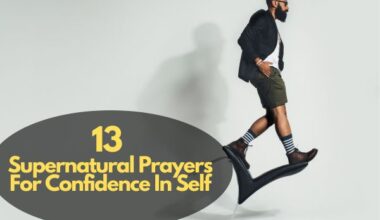Table of Contents Show
The pursuit of patience, a virtue revered across cultures and philosophies, often prompts the contemplation of whether one should actively pray for its cultivation. In the midst of life’s trials and tribulations, the question of whether to seek patience through prayer becomes a significant consideration. This article underscores the complexities of this inquiry, examining the implications of praying for patience and its potential impact on personal growth, resilience, and the cultivation of a more peaceful and balanced life.
Should You Pray For Patience?
Patience, often hailed as a virtue, is a quality that many strive to incorporate into their lives. It’s the ability to remain calm in the face of adversity, to endure trials without succumbing to frustration, and to wait with grace for the desired outcome. But in the quest for patience, some might wonder whether prayer is a viable option. Should we actively pray for patience, or is it a trait that develops naturally over time?
The Meaning of Patience
Patience, in its essence, is the art of managing emotions and impulses during challenging situations. It involves the ability to maintain composure when faced with delays, obstacles, or hardships, and it often requires a strong sense of self-control and understanding. But beyond being a mere quality, patience encompasses a deeper understanding of oneself and the world.
Understanding the Importance of Patience
The significance of patience becomes evident when we acknowledge its impact on various aspects of life. From personal relationships to professional endeavors, patience plays a crucial role in maintaining harmony and fostering growth. It’s the foundation upon which resilience and perseverance are built, and it’s the key to achieving long-term success and fulfillment.
Exploring the Psychological Benefits of Patience
Psychologically, cultivating patience can lead to improved mental well-being. Studies have shown that individuals with higher levels of patience tend to experience lower levels of stress and anxiety. Patience fosters a sense of emotional stability and helps in developing a positive outlook, ultimately contributing to overall mental resilience.
The Role of Patience in Personal Growth
Personal growth often involves navigating through challenging circumstances and learning from experiences. Patience acts as a guiding force, allowing individuals to embrace the journey rather than fixating on immediate results. It encourages the development of essential skills such as perseverance, adaptability, and empathy, leading to a more profound and holistic personal transformation.
How Patience Impacts Relationships
In the realm of relationships, patience acts as a powerful tool for fostering understanding and empathy. It allows individuals to communicate effectively, resolve conflicts calmly, and build stronger emotional bonds. Patience promotes mutual respect and encourages the development of meaningful connections, laying the groundwork for healthier and more fulfilling relationships.
Overcoming Impatience: Tips and Techniques
For those struggling with impatience, various techniques can be employed to cultivate a more patient outlook. Practicing mindfulness, setting realistic expectations, and developing effective communication skills are some of the strategies that can aid in overcoming impatience and fostering a more balanced approach to life’s challenges.
The Role of Patience in Achieving Goals
While the pursuit of goals often demands persistence and dedication, patience serves as a vital component in achieving sustainable success. It allows individuals to stay focused on long-term objectives, navigate obstacles with resilience, and adapt to changing circumstances without losing sight of their aspirations. Patience empowers individuals to persevere through setbacks and remain committed to their vision.
The Connection Between Patience and Resilience
Resilience, the ability to bounce back from adversity, is closely intertwined with patience. Cultivating patience enhances one’s resilience by fostering a resilient mindset and encouraging the development of coping strategies during difficult times. It equips individuals with the mental fortitude to withstand challenges and emerge stronger, more determined, and more adaptable.
Patience in a Fast-Paced World: Challenges and Strategies
In today’s fast-paced world, cultivating patience can present unique challenges. The prevalence of instant gratification and the constant pursuit of quick results can lead to heightened levels of stress and frustration. Developing strategies such as time management, setting realistic expectations, and embracing the process can help individuals navigate the demands of modern life while maintaining a patient and composed outlook.
Cultivating Patience in Daily Life
Incorporating patience into daily life involves conscious efforts and mindful practices. It entails actively practicing empathy, embracing uncertainties, and fostering a sense of gratitude for the present moment. By integrating patience into daily routines and interactions, individuals can cultivate a more balanced and fulfilling lifestyle, characterized by resilience and emotional well-being.
Patience as a Virtue: Cultural and Philosophical Perspectives
Across various cultures and philosophical traditions, patience is often regarded as a virtue that embodies inner strength and wisdom. It is praised as a fundamental pillar of moral and ethical conduct, emphasizing the importance of tolerance, understanding, and perseverance in the face of adversity. Different cultural perspectives offer valuable insights into the multifaceted nature of patience and its significance in fostering a harmonious society.
Spiritual Views on Patience: Prayer and Meditation
In spiritual contexts, patience is frequently linked to practices such as prayer and meditation. These spiritual disciplines offer a pathway for individuals to cultivate patience through introspection, self-awareness, and a deepened connection with the divine. Prayer, in particular, serves as a means to seek guidance and strength in moments of uncertainty, fostering a sense of peace and resilience through faith and spiritual contemplation.
Balancing Patience and Ambition: Finding Harmony
While patience is integral to personal growth and resilience, maintaining a balance between patience and ambition is crucial. It involves acknowledging the importance of perseverance while staying motivated to pursue one’s aspirations. Finding harmony between patience and ambition necessitates a nuanced understanding of timing, persistence, and adaptability, ensuring that the pursuit of goals is grounded in a realistic and sustainable approach.
The Dark Side of Patience: Overindulgence and Complacency
Despite its virtues, patience can sometimes manifest in negative forms, leading to overindulgence and complacency. Excessive patience can result in missed opportunities and a reluctance to take necessary actions, hindering personal growth and progress. It is essential to recognize the fine line between patience and passivity, ensuring that patience is channeled in a constructive and purposeful manner.
Conclusion
In a world that values instant gratification and rapid progress, the practice of patience remains an invaluable asset. It serves as a guiding light, illuminating the path towards personal growth, resilience, and harmonious relationships. By embracing patience as a fundamental aspect of self-development, individuals can navigate life’s challenges with grace and fortitude, fostering a sense of inner peace and fulfillment.
FAQs
1. Can patience be learned or is it an innate quality?
Patience can be cultivated through conscious efforts and the adoption of mindfulness practices, indicating that it can be learned and developed over time.
2. How does impatience affect mental well-being?
Impatience can contribute to heightened stress levels and increased anxiety, potentially impacting overall mental well-being and emotional stability.
3. What role does patience play in maintaining healthy relationships?
Patience fosters understanding, empathy, and effective communication, laying the groundwork for healthier and more fulfilling relationships built on mutual respect and compassion.








